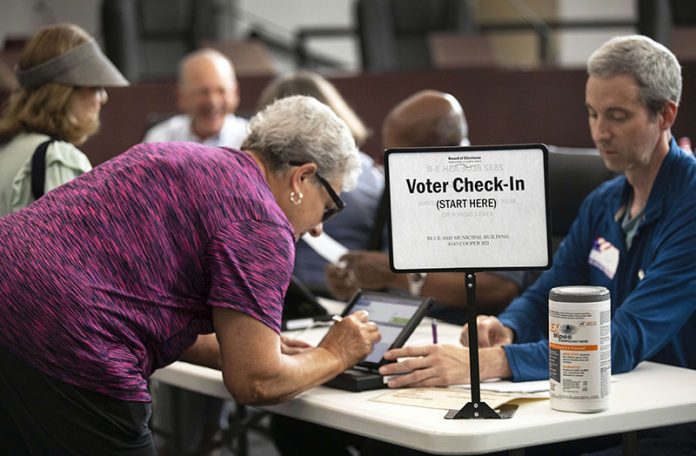
By CHRISTINA A. CASSIDY
Associated Press
ATLANTA (AP) — Election officials in Florida, Missouri and West Virginia said Monday they are withdrawing from a bipartisan, multistate effort aimed at ensuring the accuracy of voter rolls that has found itself in the crosshairs of conspiracy theories fueled by Donald Trump’s false claims about the 2020 presidential election.
The system to thwart voter fraud known as the Electronic Registration Information Center, or ERIC, has become a target of suspicion among some Republicans after a series of online posts early last year questioning its funding and purpose.
Louisiana withdrew last year and Alabama is in the process of doing so. Missouri Secretary of State Jay Ashcroft said Monday that he had been pushing the group to address concerns by him and others.
“It appears that ERIC will not make the necessary changes to address these concerns, therefore, it is time to move on,” Ashcroft said in a statement.
West Virginia Secretary of State Mac Warner said he did not expect the departure from the program to affect his state’s ability to maintain accurate voter rolls. Florida’s secretary of state, who is appointed by the governor, did not immediately respond to a request for comment.
Shane Hamlin, the group’s executive director, confirmed the three states had provided notice to withdraw.
“We will continue our work on behalf of our remaining member states in improving the accuracy of America’s voter rolls and increasing access to voter registration for all eligible citizens,” Hamlin said in a statement.
The program was started in 2012 by seven states and was bipartisan from the beginning, with four of the founding states led by Republicans. After the states officially depart, participation will be limited to 28 states and the District of Columbia.
The departures have frustrated state election officials involved in the effort and have demonstrated how deeply election conspiracies have spread throughout the Republican Party.
“Election officials who pull out of ERIC are primarily harming their own state’s ability to keep their voter list accurate,” Michigan Secretary of State Jocelyn Benson said in a statement Monday to The Associated Press. “It’s odd and disturbing to me that any official would choose validating misinformation over being part of a collaborative that has the sole and well-established purpose of improving the integrity of our elections.”
Not all Republican-led states have been reevaluating their participation in the program. In a recent survey by the AP, election offices in 23 states and the District of Columbia said they had no intention of leaving, including eight led or controlled by Republicans.



















